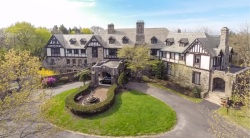
Is your child gifted? You might think so, but how do you really know? You can always have your child tested for giftedness. But is there a way you can tell on your own that your child is gifted and talented and destined for an extraordinary life?
According to the National Association for Gifted Children (NAGC), gifted children are those who demonstrate outstanding aptitude or competence in some structured area of activity or learning.
Examples of structured areas include music, art, mathematics, language, dancing and sports. Gifted children might also show advanced abilities in the area of communications, and it is in this realm that parents can get the earliest glimpse into possible giftedness.
If a child shows signs of being gifted, parents and grandparents are urged to support that child and nurture the thinking, feelings and behavior that make that child special.
Gifted testing can come later. However, early on, it’s more important to provide the attention and care that will provide the emotional development needed to understand and expand upon those gifts.
Infancy – 2 years
What are the first signs to look for? Infants and children a few months old will recognize their caregivers and gaze intently at their surroundings. Holding that gaze for a longer period reflects a focus and intensity that characterizes giftedness.
There is an unusually strong alertness to people and things around the child. Toddlers watch others carefully and begin to mimic the actions they see.
Intelligent babies and toddlers quickly absorb what they hear and understand more of what is happening around them. Their brains are more receptive. Parents are often surprised at how much their young children know.
Gifted babies may roll, walk or talk earlier than other babies. Motor skills have been identified by the NAGC as signs of giftedness.
Gifted toddlers get really involved in the things they are interested in. If interrupted or stopped, they can become emotional and have temper tantrums. This could be a sign of giftedness – or just emotional immaturity. Parents would have to watch for repeated patterns to decide what the real cause would be.
Toddlers may show interest in computers. This is part of their thirst for knowledge and desire to explore their surroundings. They will also be playing with blocks and shape sorters.
Within the first six months, they will be paying attention when someone reads to them. Before age one, they will be turning pages of a book.
By the age of 14 months, gifted children can form two-word phrases. And by 18 months can say and understand several words.
By the age of one, gifted children can sit still long enough to watch TV programs and start to identify their favorite TV programs or DVD stories.
Children approaching age two will be able to count up to 10 and will recognize colors. They will have an interest in puzzles and develop a longer attention span.
Ages 2–4 years
As young children begin to grow, they develop interest in time. They have stronger memories that amaze others. They can recall facts easily, including what they hear from television, movies or books.
They take on more challenging puzzles (20-pieces). They may have imaginary friends or create imaginative scenarios. They develop a curiosity that drives them to ask many questions. They want to solve problems on their own and get great satisfaction doing so.
While some gifted children want the freedom to express their creativity, others seek safety in a consistent and predictable structure. Feeling more comfortable in a structured environment, they can extend and expand their particular gifts at a normal pace.
By age four, gifted children are learning signs and symbols, can count small quantities and write their own names.
They start to develop any artistic or other talent they have in specific areas like facility with numbers or language or musical aptitude. They can manipulate numbers in their heads or draw realistic pictures.
By age four, they can add and subtract and have a strong understanding of mathematics. They develop stronger vocabularies and use words that other children their age do not know or understand.
Young children become very active, become passionate about their interests and take on tougher challenges with the “I can do this” attitude. This high level of activity could lead to sleeplessness, so parents should be aware that this is a normal byproduct of being supercharged.
Gifted children are more perceptive and will notice a new dress, a haircut, or other changing pattern and will be sensitive to the emotions of others.
Gifted children will develop a sense of humor, perhaps because they can see unusual associations among dissimilar objects and situations.
When gifted testing should be considered
If your child exhibits many of the signs noted above, it is probably best to just continue to observe and support the child’s development until it is time for elementary school.
Children as young as three can be given intelligence and aptitude tests, but gifted testing at a later age would be more valid. There are also online tests that can be given for informal assessments.
Average intelligence falls in the range of 85-115. The intelligence of gifted children is usually considered to be 120-130 or above.
As the gifted child enters school, there are other factors to consider besides intelligence. Many gifted children also have learning disabilities in one form or another. Sometimes the disability gets noticed but the giftedness does not.
Teachers and other school officials should be aware of each child’s psychological and emotional condition and take whatever steps are needed to accommodate that child’s developmental needs.
School psychologists and other health care and educational professionals should be available as needed to guide the gifted child through, not only the academic world of education but also the social aspects and peer adjustments needed.
Assessments for gifted and talented children don’t stop with IQ tests. Parents, teachers and other professionals are often asked for their evaluations and impressions, and these observations contribute to the decisions on giftedness and programs for further exploration and talent development.
The definition of Giftedness for any one child is not always easy to detect. It is often overlooked in children from ethnic minorities or in those with English as a second language.
However, the more that society can understand gifted and talented children as well as their learning deficiencies, the better our testing will become and the better our programs will become to serve their interests.






